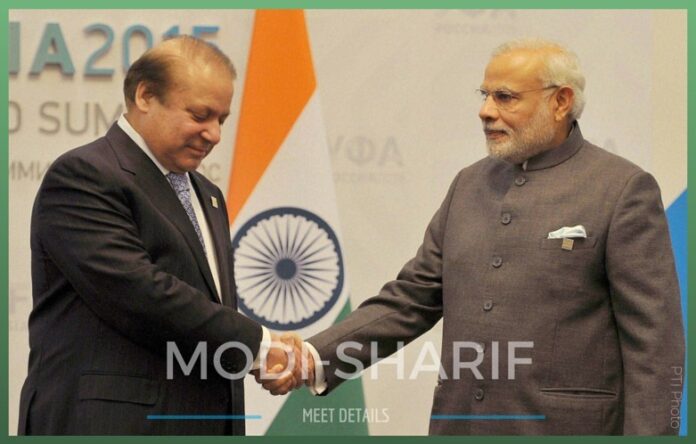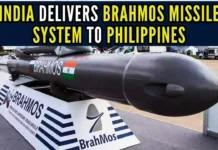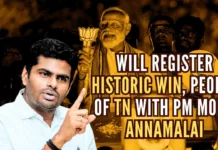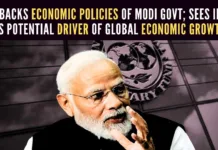
PerformanceGurus Staff
New Delhi
In a major development that should silence the guns on the Indo-Pak border and pave the way for reducing trust deficit between them, bitter rivals India and Pakistan on July 10 agreed to resume their stalled bilateral talks. Siginificantally, Indian Prime Minister Narendra Modi also agreed to travel to Pakistan next year to attend the South Asian Association for Regional Cooperation (SAARC).
The development came after an hour-long talk between Modi and his Pakistani counterpart Nawaz Sharif on the sidelines of the Shanghai Cooperation Organisation (SCO) summit in the Russian city of Ufa.
Prime Minister Nawaz Sharif reiterated his invitation to Modi to visit Pakistan for the SAARC Summit in 2016.Prime Minister Modi accepted the invitation, said a joint statement.
Incidentally, while the Premiers of the two nations were engaged in holding talks, the Border Security Force was paying its last respects to a jawan(soldier) who fell to firing by the Pakistani troopers on July 9 at Indian forward post along the line of control (LoC) in Baramulla of north Kashmir. Pakistan has been engaged in heavy shelling for the last one week in repeated ceasefire violations.
Modi and Sharif had held last bilateral talks in May 2014 in New Delhi when the Pakistan Prime Minister visited India to attend Modi’s swearing-in ceremony. They had also held brief informal exchanges during the SAARC summit in Kathmandu in November last.
From India’s point of view, Sharif’s unequivocal denouncement of terrorism in the joint statement, will be seen as major diplomatic victory for New Delhi. India, which has lost thousands of jawans and civilians over the years to Pak-sponsored terrorism in Jammu and Kashmir and other parts of the country, has been pressing Pakistan to dismantle its terror training infrastructure in the Pakistan occupied Kashmir (PoK). However, there was no word in the joint statement on addressing India’s concern on this count.
But Pakistan did agree to carry forward the discussion to deal with the menace of terrorism at the highest level. The two sides agreed that National Security Adviser Ajit Doval and his Pakistani counterpart Sartaj Aziz will meet in New Delhi to discuss all issues connected to terrorism..
In a joint press conference to brief the media on the outcome of the Modi-Sharif bilateral talks, Indian Foreign Secretaries S Jaishankar and his Pakistan counterpart Aizaz Ahmad Chaudhry read out the five-point joint statement that summed up the core of the understanding arrived at between the two nations.
Both diplomats took turns to read out the statement that focused on dealing with terrorism. The statement said both the leaders condemning terrorism in “all its forms” and agreed to cooperate with each other to eliminate the menace from South Asia.
From the domestic point of view, Modi was able to persuade Sharif to take steps to expedite the trial of Pakistani accused of the ghastly terror attack on Mumbai in November 2008. Since then the Indo-PaK talks have remained on the back burner.
“Both sides agreed to discuss ways and means to expedite the Mumbai case trial including additional information like providing voice samples,” the statement said.
While in Opposition, Modi vociferously opposed resumption of talks with Pakistan untill Islamabad agreed to dismantle its terror training infrastructure and punish the guilty of Mumbai attacks,
As expected, the Congress was quick to criticise Modi for engaging with Sharif without gaining those concessions. “Modi’s meeting with Pakistan’s premier Nawaz Sharif) is neither historic nor a breakthrough… It is a diluted rehash of India’s past positions and commitments extracted from Pakistan,” senior Congress leader Anand Sharma said, adding “Sharma said, adding, “There has been “no clarity, coherence and consistency” on the government’s policy to deal with Pakistan. This (joint) statement is a departure and dilution. We would like to ask the PM why he conceded that we have not given evidence. This justifies Pakistan’s intransigence on the trial of 26/11 perpetrators there,” he said.
On the other hand, the he Bharatiya Janata Party (BJP) described as “breakthrough” the outcome of the talks between Modi and Sharif, saying Pakistan has accepted our definition of terrorism.”
“The meeting was a breakthrough, the reason for this is very clear as for the first time Pakistan has accepted our definition of terrorism.”
“For the first time Pakistan has accepted to combat terrorism in ‘all its forms’.”
– BJP leader M J Akbar
Akbar added that in the past Pakistan always tried to differentiate between good terrorists and bad terrorists.
Akbar also asserted that agreement on exchanging voice samples to expedite the 26/11 Mumbai attacks case is big development.
However, experts feel that much will depend on how the situation unfolds before Modi’s proposed visit to Pakistan. “Pakistan has made similar commitment in the past, and backed out. Unless, it agrees to dismantle its terror factories in the PoK, we can‘t expect them to address India’s concern seriously,” said a senior diplomat.
Following are the steps both sides have agreed to take to improve their ties::
- A meeting in New Delhi between the two NSAs to discuss all issues connected to terrorism.
- Early meetings of Director General (DG) of Border Security Force and the DG of Pakistan Rangers followed by that of DGs of Military Operations.
- Decision for release of fishermen in each other’s custody, along with their boats, within a period of 15 days.
- Mechanism for facilitating religious tourism.
- Both sides agreed to discuss ways and means to expedite the Mumbai case trial, including additional information like providing voice samples.
- NIA confiscates Pak-harboured Khalistani terrorist Lakhbir Singh Rode’s key aide’s land in Moga - April 19, 2024
- Prime Minister Narendra Modi: A Gujju businessman who does not invest his precious time for a losing battle - April 13, 2024
- NIA arrests two accused Shazib and Taahaa in Bengaluru’s Rameshwaram Cafe blast case from Kolkata - April 12, 2024










